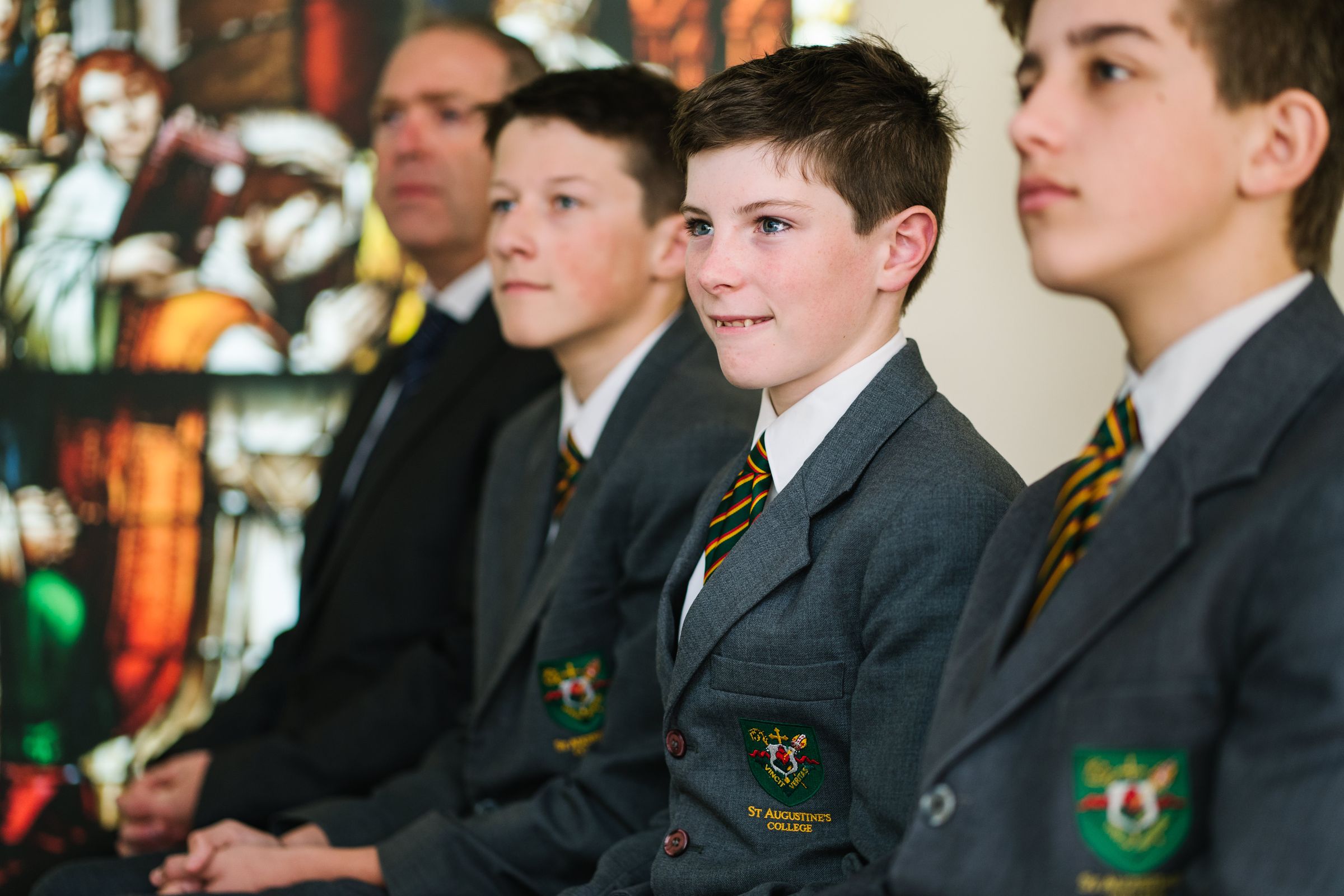Building Resilient Students: How the AWE Framework Supports Emotional Wellbeing
Nurturing Student Wellbeing Through the Augustinian Wellbeing in Education (AWE) Framework
At St Augustine’s College, education extends beyond academics. It is about shaping young men who are confident in their emotional selves, ensuring they’re equipped with the skills to navigate life’s challenges, and preparing them to foster positive relationships.
Through our AWE Framework we provide students with the tools they need to thrive, drawing on the principles of Positive Psychology to promote emotional regulation, resilience and overall wellbeing.
The Science Behind AWE: Positive Psychology in Action
Positive Psychology is the scientific study of human wellness and optimal functioning. It is founded on the belief that people strive for meaningful and fulfilling lives, seeking to cultivate their own strengths and enhance their experiences in love, work, and play.
Dr Martin Seligman’s PERMA model of positive education includes five elements to build social and emotional capacity:
- Positive emotion
- Engagement
- Relationships
- Meaning
- Accomplishment
Through AWE lessons, students in Years 7 and 8 actively explore these concepts in a structured and supportive environment. However, the influence of Positive Psychology extends beyond AWE classes, enriching various subjects and daily interactions within the College.
Developing Essential Life Skills Through AWE
Emotional regulation is a critical skill that allows individuals to understand, manage, and express emotions in constructive ways. As part of AWE lessons, students engage in activities that help them:
- Develop relationship-building skills by responding constructively to others’ good news
- Recognise and reframe negative self-talk into realistic and helpful thought patterns
- Take responsibility for emotional self-regulation
- Learn resilience techniques to overcome setbacks
- Appreciate the benefits of gratitude and self-motivation
- Cultivate curiosity, research skills, and reflective thinking
- Identify and celebrate personal strengths and those of others
- Explore how service to others contributes to a meaningful life
By equipping students with these tools, we empower them to become self-aware and emotionally intelligent individuals who can navigate life with confidence and purpose.
Supporting Parents in Promoting Wellbeing
Understanding and supporting a child’s emotional regulation is a shared responsibility between school and home. To assist parents in fostering their child’s emotional development, we have compiled a list of valuable resources that provide great strategies and insights tailored to our adolescents’ mental wellbeing:
- Teens Need a Wide Emotional Vocabulary to Express Their Feelings
- Raising Children: Ups and Downs of Teen Mental Health
- Emotions and the Teenage Brain
For those interested in a deeper exploration of Positive Psychology, the following books provide insightful perspectives:
- Positive Psychology in a Nutshell: The Science of Happiness – Ilona Boniwell
- Pursuing the Good Life: 100 Reflections on Positive Psychology – Chris Peterson
- Positive Psychology: Theory, Research and Applications – Ilona Boniwell & Kate Hefferon
- Authentic Happiness: Using the New Positive Psychology to Realise Your Potential for Lasting Fulfillment – Martin Seligman
A Commitment to Holistic Student Development
By integrating the principles of Positive Psychology into our AWE Framework, we are nurturing students who are not only academically adept but also emotionally resilient and socially connected. Through intentional teaching and a strong support system, St. Augustine’s College continues to foster a culture of wellbeing that empowers young men to lead fulfilling, balanced lives.
Together, as a College community, we can ensure that our students develop the skills they need to embrace life’s challenges with confidence, purpose, and emotional strength.


